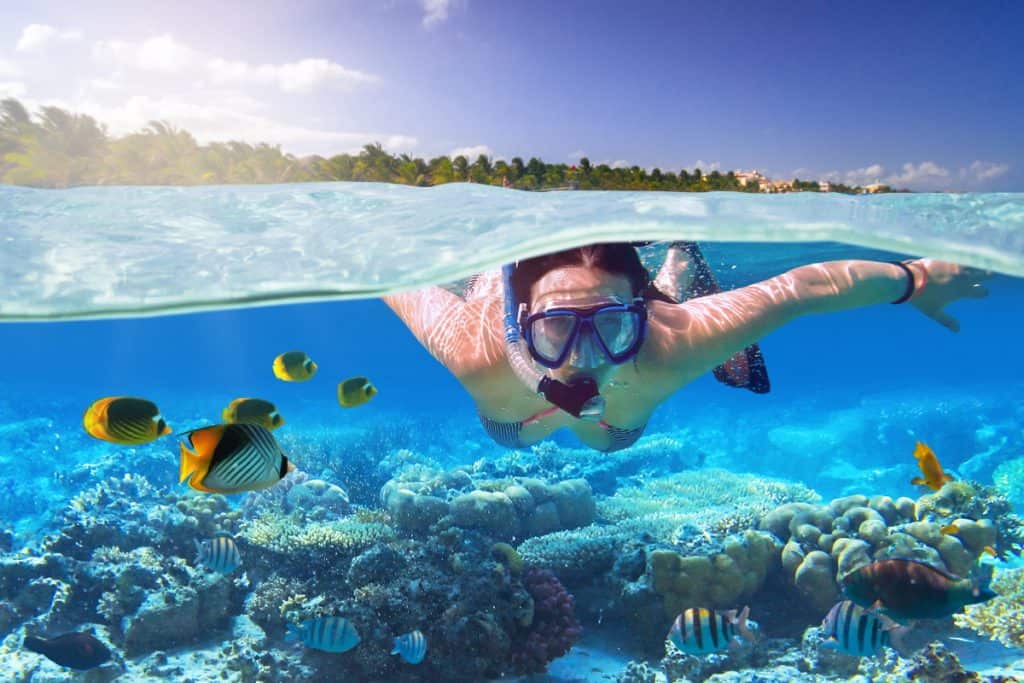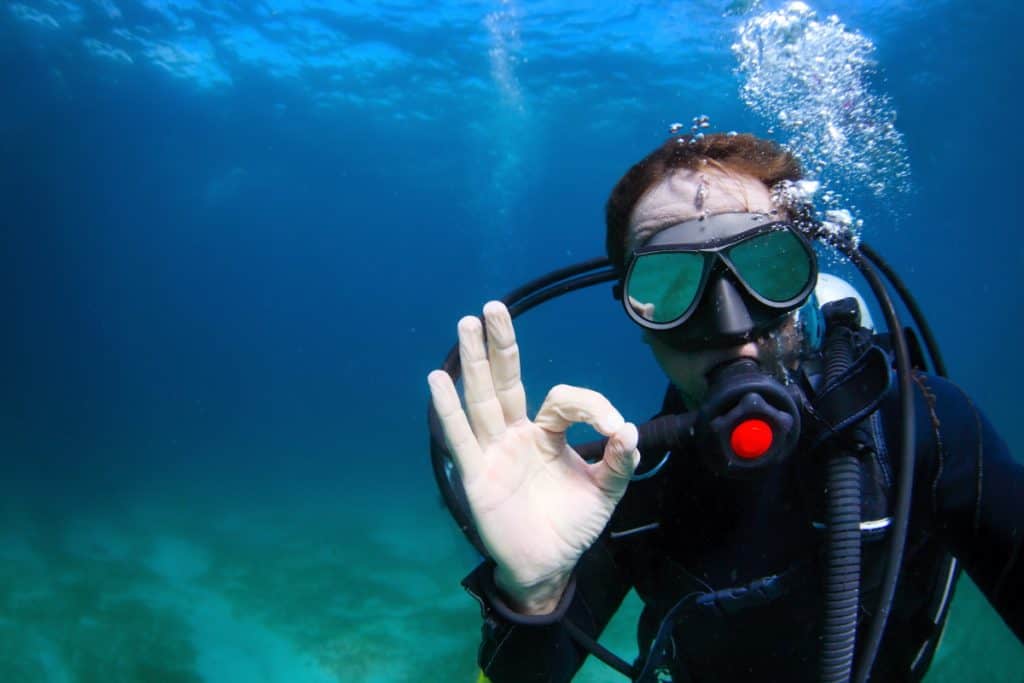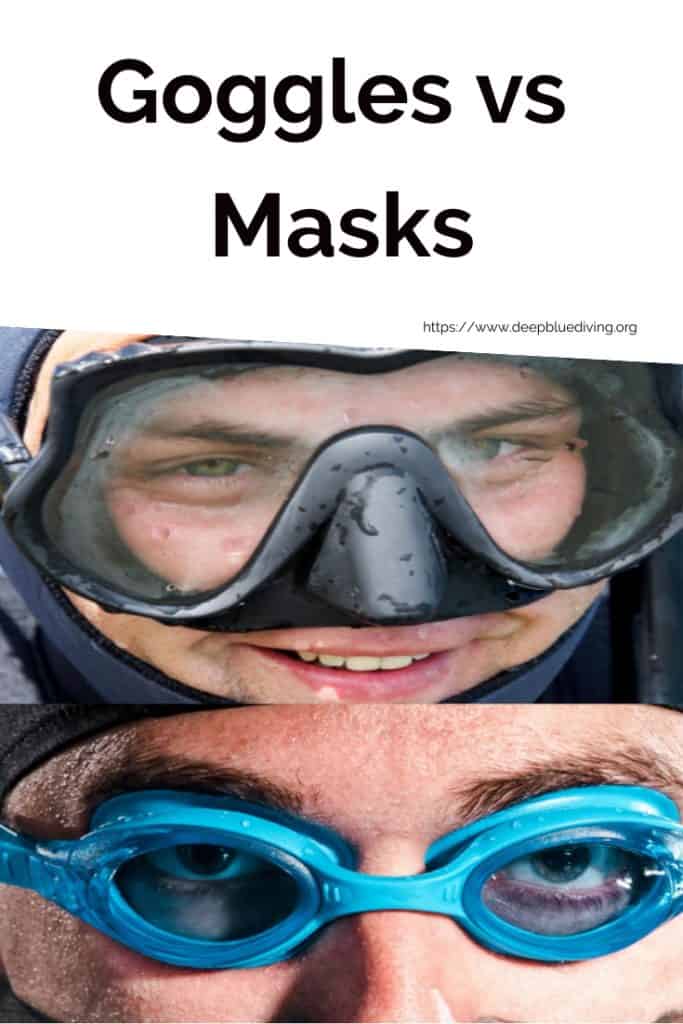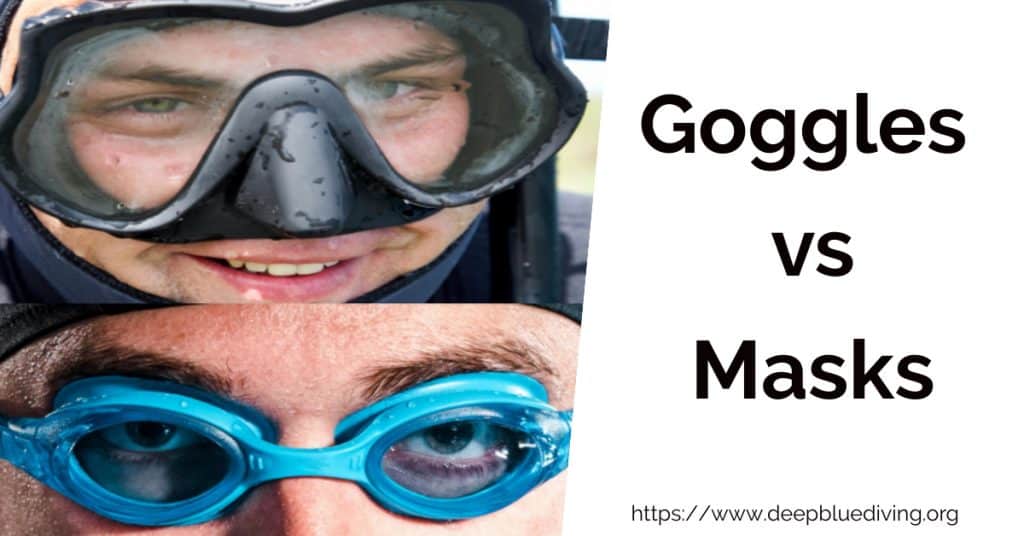Comparing Goggles vs Masks – What are the Differences?
Many people use the term goggles and masks interchangeably. Yet, technically, there are no such things as diving goggles or snorkeling goggles. Both are considered to be masks.
Goggles are usually used for swimming or skiing. In some cases they are used in the flying world, and certainly, you find safety goggles for a variety of applications. However, when it comes to snorkeling and scuba, you only have masks. There are also only masks for freediving and spearfishing.
Definitions of Goggles and Masks
The Free Dictionary defines googles as
“goggles A pair of tight-fitting eyeglasses, often tinted or having side shields, worn to protect the eyes from hazards such as wind, glare, water, or flying debris.”
The definition of masks from the Free Dictionary reads:
“A usually rubber frame forming a watertight seal around the eyes and nose and containing a transparent covering for use in seeing underwater.”
The main difference from the definition is that a mask (Best Scuba Diving Masks – Reviews and Buying Advice) covers the eyes and nose with a waterproof seal. Goggles only cover and protect the eyes. Therefore, goggles work well for swimming but are not a good choice for scuba diving or snorkeling. For scuba diving, snorkeling, freediving, and any other underwater activity, you need a mask covering your nose while breathing through your mouth.
But that’s not the only reason why you want to wear a mask when diving and not goggles. Goggles typically sit right around your eye socket, many even on the inside of your eye sockets.
Now, we all know that the deeper we dive, the higher the surrounding pressure gets. That pressure produces a lot of weight being forced against the mask or, in our example, the goggles.
The density of water is around 800 times the density of air. Diving underwater puts a lot of pressure on the air inside your mask.
While you stay on the surface, like when you’re swimming, the pressure is basically the same as on land. Diving underwater, the pressure quickly increases. The intense pressure during a dive affects the air in your mask.

Why not use Goggles for Snorkeling?
You might say that snorkelers don’t dive, which is kind of true. When snorkeling, you might often see something interesting a few feet down where you just want to dive to have a closer look quickly. In that instance, it’s certainly advantageous to have a dive mask instead of goggles.
Additionally, when you’re snorkeling, you breathe through the snorkel in your mouth. If your nose is inside a mask, you won’t be tempted to breathe through your nose. Even if you try to, you simply won’t get air and switch effortlessly to the snorkel. Imagine if your nose was not in the mask and you tried to take a deep breath! You’d breathe a lot of water in, which could be dangerous!
Mask Squeeze
If you wear a mask, then the pressure against the mask pushes against your skull above and around your eyes and then against your upper jaw underneath your nose. There’s usually no health concern due to the pressure against your face and bones.
The exception is when the pressure from the surrounding water gets too high. The mask will press harder against your face, and the air in the mask will compress. The result is mask squeeze which usually is a temporary condition and can range from slight discomfort to experiencing quite a bit of pain.
A dive mask that covers the nose allows you to increase the amount of air in the mask to counter the squeeze. This instantly relieves the pressure in the mask and reduces or removes the discomfort caused by mask squeeze.
If you’d dive with goggles that sit around or inside your eye socket, the mask squeeze quickly would become unbearable. Imagine the pain caused by goggles pressing against your eye sockets instead of your skull! It’s easy to imagine that this possibly could even lead to permanent problems with your eyes.

How to Find the Best Dive and Snorkel Mask for Mustache and Beard
Final Thoughts on Goggles vs Masks
For all the reasons mentioned above, it’s best if you stick with the common sense approach and use goggles only for swimming. When you go scuba diving or freediving, then get yourself a great scuba mask.
Snorkelers can either pick a dive mask or instead use a full-face snorkel mask (Best Full Face Snorkel Masks – Reviews and Buying Advice). This allows you to breathe through your nose or mouth!


